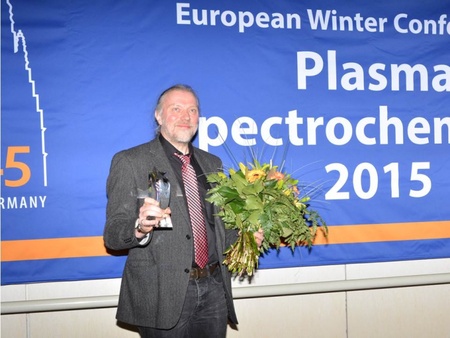A leading academic from the University of Aberdeen has been honoured for his work in developing chemical methods that will help ensure safe levels of arsenic in rice and rice-based products.
Professor Jörg Feldmann, who heads the University’s Trace Element Speciation Laboratory (TESLA) won the 2015 European Award for Plasma Spectrochemistry, which is awarded for continued important contributions in the field.
TESLA’s focus is on the determination of the molecular form of toxic and beneficial trace metals in environmental and biological samples such as food.
They had been commissioned by the European Joint Research Centre to provide evidence that a robust analytical methodology to determine levels of inorganic arsenic in rice and rice-based products exists.
This research was identified as fundamental by food standard agencies after the World Health Organisation suggested a maximum permissible level for inorganic arsenic for polished rice last year. It is expected that a maximum permissible level for inorganic arsenic will be incorporated into European law for the first time.
Professor Feldmann had previously published a series of influential papers on the amount and type of arsenic that can be found in rice and rice products, which attracted global media interest.
Accepting the award at the European Winter Conference on Plasma Spectrochemistry in Münster, Germany, he said: “This award is a testament to the hard work of everyone at TESLA, who have worked tirelessly to develop a methodology that will help measure safe levels of inorganic arsenic in food which will now be incorporated into European law. The award is given out only once every two years, and I am very happy to have accepted it on behalf of the team here at the University of Aberdeen.”


